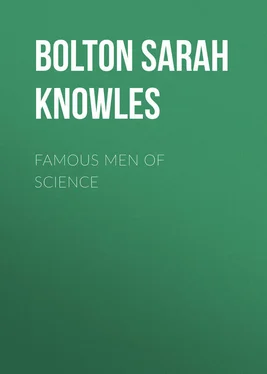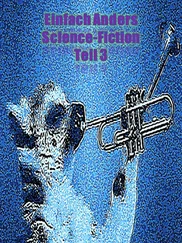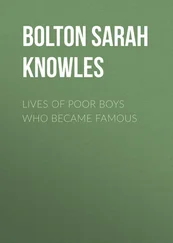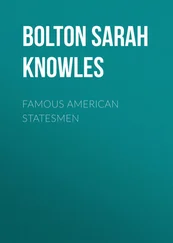Sarah Bolton - Famous Men of Science
Здесь есть возможность читать онлайн «Sarah Bolton - Famous Men of Science» — ознакомительный отрывок электронной книги совершенно бесплатно, а после прочтения отрывка купить полную версию. В некоторых случаях можно слушать аудио, скачать через торрент в формате fb2 и присутствует краткое содержание. ISBN: , Жанр: foreign_language, foreign_antique, foreign_prose, Биографии и Мемуары, на английском языке. Описание произведения, (предисловие) а так же отзывы посетителей доступны на портале библиотеки ЛибКат.
- Название:Famous Men of Science
- Автор:
- Жанр:
- Год:неизвестен
- ISBN:http://www.gutenberg.org/ebooks/35489
- Рейтинг книги:3 / 5. Голосов: 1
-
Избранное:Добавить в избранное
- Отзывы:
-
Ваша оценка:
- 60
- 1
- 2
- 3
- 4
- 5
Famous Men of Science: краткое содержание, описание и аннотация
Предлагаем к чтению аннотацию, описание, краткое содержание или предисловие (зависит от того, что написал сам автор книги «Famous Men of Science»). Если вы не нашли необходимую информацию о книге — напишите в комментариях, мы постараемся отыскать её.
Famous Men of Science — читать онлайн ознакомительный отрывок
Ниже представлен текст книги, разбитый по страницам. Система сохранения места последней прочитанной страницы, позволяет с удобством читать онлайн бесплатно книгу «Famous Men of Science», без необходимости каждый раз заново искать на чём Вы остановились. Поставьте закладку, и сможете в любой момент перейти на страницу, на которой закончили чтение.
Интервал:
Закладка:
The next year, 1782, Herschel went to London, and met with a gracious reception from George III. He wrote back to his devoted sister: "Dear Lina: All my papers are printing, with the postscript and all, and are allowed to be very valuable. You see, Lina, I tell you all these things. You know vanity is not my foible, therefore I need not fear your censure. Farewell.
"I am your affectionate brother, "Wm. Herschel."Again he wrote, —
"I pass my time between Greenwich and London, agreeably enough, but am rather at a loss for work that I like. Company is not always pleasing, and I would much rather be polishing a speculum… I am introduced to the best company. To-morrow I dine at Lord Palmerston's, next day with Sir Joseph Banks, etc., etc. Among opticians and astronomers nothing now is talked of but what they call my great discoveries. Alas! this shows how far they are behind, when such trifles as I have seen and done are called great . Let me but get at it again! I will make such telescopes, and see such things – that is, I will endeavor to do so."
And this great ambition nerved him for action, continued and laborious, as long as he lived. He was never satisfied; always achieving. Little can be expected from those who are easily satisfied.
George III. wisely appointed Herschel Royal Astronomer, though with the too small salary of one thousand dollars yearly. He came back to Bath only to perform the last musical duty on Whit Sunday, 1782, the anthem for the day being his own composition, and to say good-by to his pupils.
He moved to Datchet in 1782, and set up his twenty-foot telescope. In 1783 he had made three reviews of the heavens. In 1784 he made a fourth review with his twenty-foot telescope. Caroline says: "My brother began his sweeps when the instrument was yet in a very unfinished state, and my feelings were not very comfortable when every moment I was alarmed by a crash or a fall, knowing him to be elevated fifteen feet or more on a temporary crossbeam, instead of a safe gallery. The ladders had not even their braces at the bottom; and one night, in a very high wind, he had hardly touched the ground before the whole apparatus came down… I could give a pretty long list of accidents which were near proving fatal to my brother as well as myself."
A gentleman who visited him at Datchet wrote: "The thermometer in the garden stood at 13° Fahrenheit; but in spite of this, Herschel observes the whole night through, except that he stops every three or four hours and goes in the room for a few moments. For some years Herschel has observed the heavens every hour when the weather is clear, and this always in the open air, because he says that the telescope only performs well when it is at the same temperature as the air. He protects himself against the weather by putting on more clothing. He has an excellent constitution, and thinks about nothing else in the world but the celestial bodies."
But, occupied as Herschel was about "celestial bodies," he yet found time to think about earthly things, for we find him at forty-five, May 8, 1783, marrying Mary, the wealthy widow of John Pitt, Esq., a lady of much intelligence and amiability.
The sad feature of the new relationship was the misery it brought to Caroline. Her whole life had centred in William. For eleven years she had devoted every moment, every wish, every thought to him. She had watched all night among the stars with him, month after month, and year after year, in cold and in heat, and superintended his home by day. His every desire was her law. She loved no other, and he was her all. Perhaps she ought to have known that another might come into his life, but she trusted blindly, and did not question the future.
When the wife came into the home, Caroline went out of it forever. For more than twenty years she lived in lodgings, always "cheerless and solitary," her only happiness found in coming day by day to help her brother in his great work. Sometimes, when the wife was absent, Caroline came back for a few days and lived over the old unalloyed life, and then went back to her lonely lodgings.
For ten years following this marriage, she probably told her heart-aches in her journal; but before her death she destroyed the record of these years, that the feelings of those who were alive might not be pained. In later days she became more reconciled to Lady Herschel, as "a dear sister, for as such I now know you," and idolized their only son, the renowned Sir John Herschel, born nine years after their marriage.
In 1785, Herschel began to construct his great forty-foot telescope, and the next year removed to Slough, not far from Windsor. "In the whole of the apparatus," he said, "none but common workmen were employed, for I made drawings of every part of it, by which it was easy to execute the work, as I constantly inspected and directed every person's labor; though sometimes there were not less than forty different workmen employed at the same time. While the stand of the telescope was preparing, I also began the construction of the great mirror, of which I inspected the casting, grinding, and polishing; and the work was in this manner carried on with no other interruption than that occasioned by the removal of all the apparatus and materials from where I then lived, to my present situation at Slough." He had his first view through the telescope February 19, 1787. George III. gave twenty thousand dollars for the building of this instrument, and one thousand dollars yearly for its maintenance.
A half-century afterwards, the woodwork having become decayed, it was taken down, the great tube laid horizontally, and, after Sir John Herschel and his family had passed through it, a poem written by Sir John having been read, it was sealed January 1, 1840, and placed on piers.
With this great telescope, Herschel discovered two satellites of Saturn, Mimas and Enceladus; one on August 27, 1789, and the other on September 17 of the same year. Two years before this, January 11, 1787, he discovered two satellites of Uranus, Oberon and Titania. Sixty years afterwards, Mr. Lassell, of England, discovered the remaining two satellites of Uranus, called Ariel and Umbriel.
From this time his work went forward grandly. He had already completed more than two hundred seven-foot, one hundred and fifty ten-foot, and eighty twenty-foot mirrors. For many of the telescopes sent abroad he made no stands, but provided the drawings. He wrote much about Saturn and its rings, and showed that its most distant satellite, Japetus, turns once on its axis in each revolution about its primary, as our moon does about the earth.
He studied carefully the nature of the sun, its probable gaseous surface, and its spots, and was the first to suspect their periodic character. What would Herschel have said to the wonderful photographic representations of these spots given by Professor Langley, in his New Astronomy; spots which are one billion square miles in size; more than five times the surface of the land and water on the earth? He saw, as astronomers to-day see, that heat cannot be produced without expenditure of force; and that the sun is probably cooling, even though scarcely perceptibly for ages to come. He saw what science now generally concedes, the rise and fall of the solar system; its gradual fitness for the coming of man, through almost countless centuries; and its final unfitness, when his generations shall have gone forever.
He wrote much about the Milky Way, believing at first that it could be completely resolved into stars, about eighteen millions of them; but later he changed his theory, having found so much nebulous matter – in a state of condensation as though new worlds were forming, possibly to be the homes of some new race, or of man in the ages to come.
His study of the variable stars attracted wide attention. He found that the star Mira Ceti was for several months invisible to the naked eye; then it grew brighter and brighter, and finally disappeared for months, as before. He saw that other stars are periodic, and came to the conclusion that this is occasioned by the rotation of the star upon its axis, by which different parts of its surface are presented to us periodically.
Читать дальшеИнтервал:
Закладка:
Похожие книги на «Famous Men of Science»
Представляем Вашему вниманию похожие книги на «Famous Men of Science» списком для выбора. Мы отобрали схожую по названию и смыслу литературу в надежде предоставить читателям больше вариантов отыскать новые, интересные, ещё непрочитанные произведения.
Обсуждение, отзывы о книге «Famous Men of Science» и просто собственные мнения читателей. Оставьте ваши комментарии, напишите, что Вы думаете о произведении, его смысле или главных героях. Укажите что конкретно понравилось, а что нет, и почему Вы так считаете.












